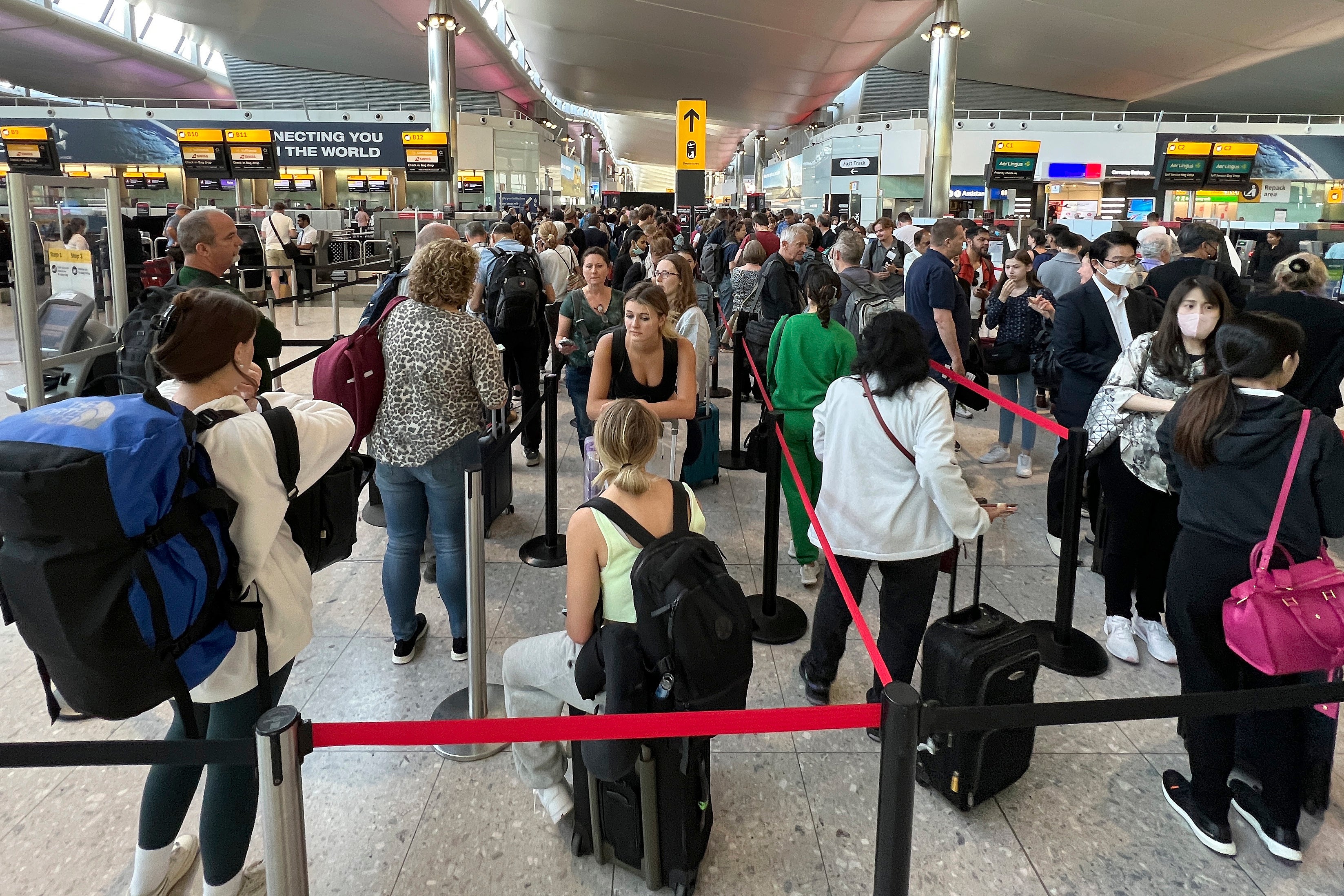Home Office to pilot ‘contactless corridors’ to allow travellers to breeze through border control
The pilot scheme will hopefully begin running in 2024, the Home Office said

Travellers could one day breeze through border control with no physical checks in new “contactless corridors” being rolled out by the Home Office.
The home secretary, Priti Patel, announced on Wednesday that her department were going to pilot secure “contactless” border crossings.
This would allow some passengers to enter the UK and undergo automated border screening without going though an eGate, which scans your passport, or speaking to a Border Force officer.
Instead, travellers would undergo “pre-screening”, the home office said in a statement. This would allow them to be “identified at the border using the latest technology”.
The Times reported that this would be made possible through the use of facial recognition technology. Foreigners arriving in Britain would have to submit biometric details through a smartphone app as part of the new Electronic Travel Authorisation scheme, the paper reported.
The Home Office aims to begin pilot testing in 2024.
The announcement came as part of the department’s major plans to overhaul the Border Force.
An independent review found it is performing at a “suboptimal level” and stretching its resources in an “unsustainable and highly inefficient way”.
The independent review, commissioned by Ms Patel to see how well it may respond to future challenges, named a range of issues with the organisation.
Despite a “dedicated, capable workforce”, the agency seems to be “less than the sum of its parts with significant systemic challenges”, the report found.
The review, by former Australian immigration minister Alexander Downer, said: “Overall, my impression of Border Force is an organisation which is performing at a suboptimal level.
“It appears to be struggling to get out of a cycle of crisis management, reacting to the last challenge and bracing itself for the next, regardless of how predictable the next challenge may be.
“Although Border Force is largely delivering what is required of it on a day-to-day basis, it does so by stretching its resources in an unsustainable and highly inefficient way.
Mr Downer said his review comes as Border Force is contending with “exceptional challenges”, including people coming to the UK illegally in small boats, immigration abuse, illegal drugs, firearms and organised crime, along with the need to protect national security.
The review added: “There is little capacity for strategic planning or workforce development.
“The inability of Border Force to plan effectively is further impacted by the delivery failures of enabling functions such as recruitment and procurement.
“Steps should be taken to address the administrative issues that are continuing to distract the organisation so that it can focus on its core mission.”
Improvements are needed to help make it an attractive employer, the review said, including a clear identity so it is a single unified workforce reinforced by a training academy and career path to professionalise the role of a Border Force officer.
There is also a call for better system leadership from the Home Office and other parts of government for which the agency delivers, to give the organisation a clear mandate, priorities and targets, and there should be a stronger voice for Border Force within the Home Office, along with increased accountability.
Other recommendations include better workforce planning and a proper understanding of the needs of the organisation, including consistent standards and operating procedures across different ports.
This would allow better planning for procurement so the right number of people are in the correct locations with the equipment they need.
A stronger sense of purpose, professionalism, team skills and planning is needed to allow Border Force to face challenges on the front foot, such as Heathrow passenger queues and small boats, according to the recommendations.
Forging greater levels of trust within the sector could enable joint working on border policy development and the implementation of technology at a strategic level. It could also mean better information sharing, the review said.
Referring to the “contactless” border pilot scheme, Ms Patel said the aim was to ensure the border is “fit for the 21st century” and enables travellers to get a visa and pass through it easily while maintaining national security.
She said: “I am also committed to ensuring our fantastic Border Force are given access to the most up-to-date automation technologies so they can use their specialised skills on protecting our border from those who seek to harm the UK.”
Mr Downer added: “Without a doubt, everyone I met at Border Force, from the senior team to operation managers and frontline officers, are absolutely committed to serving the UK and want the organisation to improve so they can continue being the best at countering current and emerging threats.
“The recommendations I have made will have a positive impact on Border Force, making it more resilient to cope with future challenges while providing them with the direction needed to create the improvements they need.”
Subscribe to Independent Premium to bookmark this article
Want to bookmark your favourite articles and stories to read or reference later? Start your Independent Premium subscription today.

Join our commenting forum
Join thought-provoking conversations, follow other Independent readers and see their replies